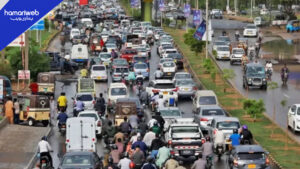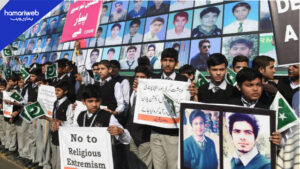Public Holidays Schedule for 2024 Announced in Pakistan
-
Rida Shahid
-
- Published December 20, 2023

In a landmark announcement, the Federal Cabinet Division has unwrapped the anticipated schedule for public holidays in 2024, providing a well-mapped journey for citizens to plan their breaks throughout the year.
| February 5 | Kashmir Day | Reflect on the struggles of Kashmiri people |
| March 23 | Pakistan Day | Commemorate the historic creation of Pakistan |
| April 10-12 | Eid-ul-Fitr | Celebrate the conclusion of Ramadan |
| May 1 | Labor Day | Honor the contributions of workers |
| June 17-19 | Eid-ul-Adha | Double celebration |
| July 16-17 | Muharram | Observance of Ashura Day |
| August 14 | Independence Day | Celebrate the freedom of the nation |
| September 16 | Eid Milad-ul-Nabi | Commemorate the birth of Prophet Muhammad |
| November 9 | Iqbal Day | Pay tribute to Allama Iqbal |
| December 25 | Quaid-e-Azam’s Birthday | Celebrate the birth of Quaid-e-Azam |
| February 14 (Optional) | Basant Panchami (Non-Muslims) | Optional holiday for non-Muslims |
| March 8 (Optional) | Shivatri (Non-Muslims) | Optional holiday for non-Muslims |
| February 7 (Optional) | Shab Mi’raj (Islamic) | Optional holiday for Islamic observance |
| February 25 (Optional) | Shab Barat (Islamic) | Optional holiday for Islamic observance |
| March 24 | Holi (Hindu) | Hindu festival |
| March 25 | Dulahandi (Hindu) | Hindu festival |
| March 29 | Good Friday | Observance of Good Friday |
| March 31 – April 1 | Easter | Christian holiday |
| April 21 (Optional) | Eid-ul-Rizwan (Bahai) | Optional holiday for Bahai community |
| March 23 (Optional) | Buddhist Purnima (Buddhist) | Optional holiday for Buddhists |
| August 15 (Optional) | Nowruz (Parsi) | Optional holiday for Parsi community |
| January 1 (Bank Holiday) | New Year | Bank holiday |
| January 1 (Optional) | New Year (Optional) | Optional holiday for New Year |
The year commences with the commemoration of Kashmir Day on February 5, an occasion to reflect on the struggles and sacrifices of the resilient people of Kashmir. Shortly after, on March 23, Pakistan Day takes center stage, commemorating the historic creation of the nation.
April ushers in a series of festivities with Eid-ul-Fitr holidays set for April 10, 11, and 12, marking the joyous conclusion of Ramadan. Additionally, May 1 has designated as Labor Day, a time to honor the invaluable contributions of workers.
June brings a double celebration with Eid-ul-Adha holidays spanning from the 17th to the 19th. Following closely, Muharram holidays fall on July 16 and 17, aligning with the significant observance of Ashura Day.
As August unfolds, citizens have the opportunity to celebrate Independence Day on the 14th, reveling in the hard-fought freedom of the nation. Furthermore, September 16 marked as Eid Milad-ul-Nabi, commemorating the birth of Prophet Muhammad.
November 9 witnesses the nation paying tribute on Iqbal Day, followed by the celebration of Quaid-e-Azam’s birthday on December 25, both recognized as national holidays.
For the non-Muslim population, February 14 presents an optional holiday for Basant Panchami, while March 8 offers an optional holiday for “Shivatri.”
Optional holidays for Shab Mi’raj (February 7) and Shab Barat (February 25) cater to those observing Islamic traditions. The Hindu festival of Holi scheduled for March 24, followed by Dulahandi on March 25.
March 29 sees the observance of Good Friday, and Easter holidays scheduled for March 31 to April 1. An optional holiday on the 13th designated for the festival of Yasakhi.
The Bahai community will observe Eid-ul-Rizwan on April 21, while Buddhist Purnima offers an optional holiday on March 23. Parsis will celebrate Nowruz on August 15, marking another optional holiday.
A separate declaration outlines bank holidays, with January 1 set as the first bank holiday of the year. Additionally, an optional New Year holiday slated for January 1.
This comprehensive and diverse holiday schedule ensures that citizens across the country can plan and celebrate key events, fostering a sense of unity and shared heritage throughout the year.







Leave a Reply